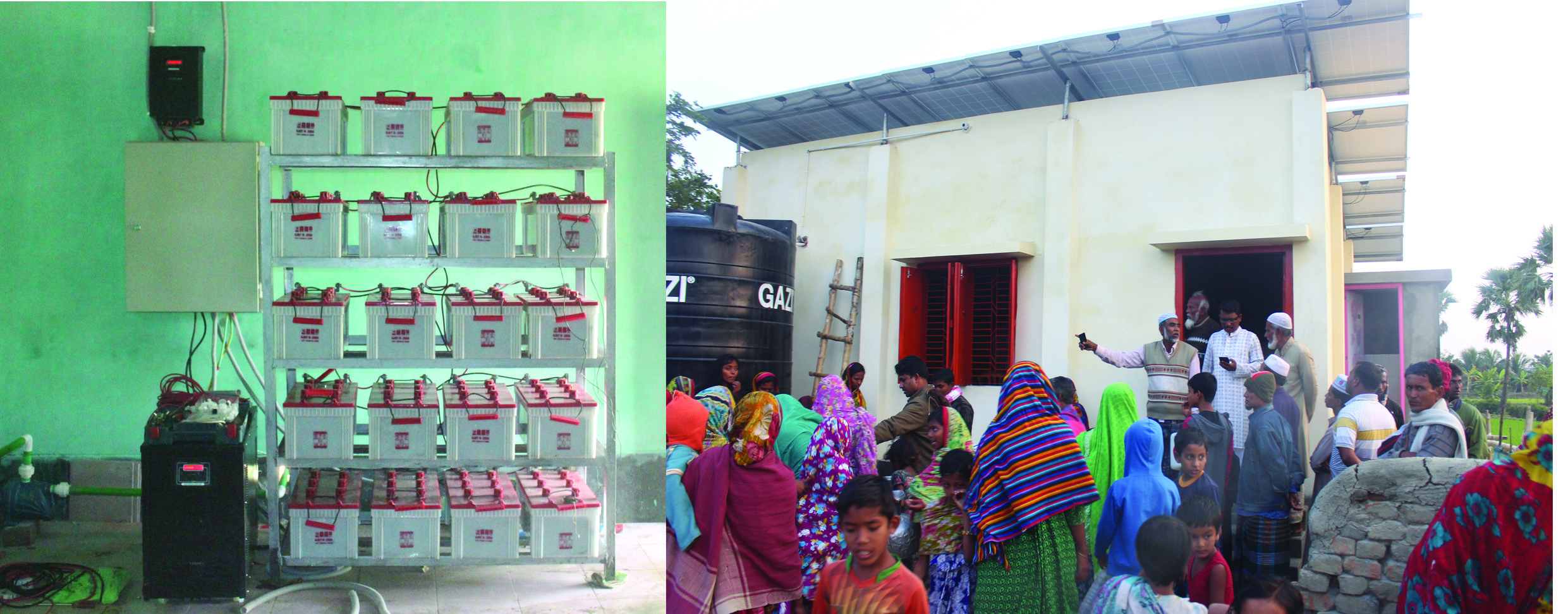
Solar System
The transformation of solar heat and light into usable electricity has, however, been of rather recent origin. The large scale use of such transformation of solar energy into power is even a more recent phenomenon in the Southwest coastal region of Bangladesh. In Bangladesh, approximately 32 percent of the population has income below the poverty line and 18 percent of total household consumption is spent on fuel. The majority of the coastal rural population does not have access to electricity, and only 60 percent(including 7% renewable energy) of Bangladesh’s total population has access to grid electricity. Besides electricity from the grid, kerosene and diesel are the most popular options for lighting and other energy needs. Households in remote areas are using solar home systems to meet their basic electrification requirements, reducing dependence on imported fossil fuels.
Nowabenki Gonomukhi Foundation (NGF) started the Solar Home system (SHS) program in 2013 to ensure access to clean electricity for the energy starved off-grid coastal rural areas of Bangladesh. The program supplements the Government’s vision of ensuring ‘Access to Electricity for All’ by 2021. The overall objective of the project is to reduce atmospheric carbon emissions by overcoming market barriers for solar energy development, including high implementation costs.
Specific objectives are :
- to supply electricity to the off-grid ultra poor people for ensuring their access and use of renewable energy;
- To improve life and livelihood of the poor in disaster (Saline) prone areas of the southwestern coast;
- To save nature and environment by reducing CO2
To know the solar activities, please click the link for more details
https://drive.google.com/file/d/0B6noi-1ijHv_VjdZcUVRSC15WTg/view?usp=sharing

